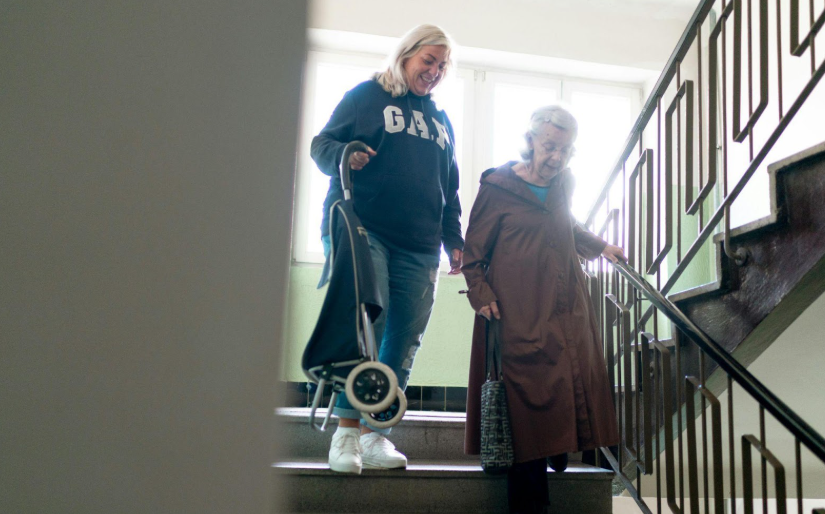
Comprehensive Home Health Care Services: Your Guide to In-Home Wellness

Medical and non-medical services can be seamlessly combined and provided in the convenience of your own home with comprehensive home health care. It’s a holistic approach designed to meet the specific needs of patients, whether managing chronic illnesses, recovering from surgery, or seeking assistance with daily activities.
The Importance of Home Health Care
Home health care offers a range of services tailored to support individuals who are aging or managing health challenges, helping them avoid unnecessary hospital visits. By combining patient-centered care with modern advancements in technology, these services enable individuals to maintain their independence while working toward improved wellness. In-home care programs can encompass everything from assistance with daily living activities to specialized services such as physical therapy or chronic disease management.
Types of Home Health Care Services
The services you or your loved one may require depend on various factors, such as the health condition, the level of assistance needed, and personal preferences. Let’s explore the key services offered in home health care:
Personal Care Aides (PCA)
People who require assistance with everyday tasks can receive non-medical support from personal care aides. These services typically include assistance with bathing, dressing, grooming, toileting, and mobility. PCAs are often an important part of in-home care for elderly individuals or those recovering from surgery. These aides are trained to offer compassionate, respectful care, helping to improve the patient's comfort and dignity.
Home Health Aides (HHA)
Personal care assistants and home health aides share duties, but home health aides frequently receive extra training to perform medical duties. They may assist with medication management, light housekeeping, and basic monitoring of vital signs. HHAs are ideal for patients recovering from illness, injury, or surgery and require hands-on assistance with both medical and personal needs.
Registered Nurses (RN)
Healthcare professionals provide skilled medical care, perform wound care, and educate patients and their families about specific health concerns. For patients with chronic conditions like diabetes, heart disease, or respiratory illnesses, RNs are essential for monitoring and preventing complications. These professionals work in close collaboration with doctors to ensure the patient’s care plan is followed accurately.
Physical Therapy
A physical therapist (PT) works with patients to improve their mobility, strength, and coordination. They design personalized exercise programs tailored to the patient's needs and help patients regain independence in performing everyday activities. Whether you're recovering from a stroke or managing a musculoskeletal condition, in-home physical therapy can accelerate your recovery process.
Medical Social Work
The emotional and social difficulties that come with aging or illness are managed by medical social workers and their families. They provide counseling and support for mental health, grief, and coping with major health changes. Additionally, they can assist you with finding resources like financial assistance, housing options, and support groups, making them an important part of comprehensive home health care.
CDPAP Services
You have the exceptional opportunity to enlist friends or family to take care of them through the Consumer Directed Personal Assistance Program (CDPAP). Under this program, caregivers are trained and compensated for assisting their loved ones with personal care needs. This program is especially valuable for families looking for a more personalized care experience and those who wish to keep caregiving within the family.
End-of-Life Care
The goal of hospice care, also known as end-of-life care, is to support and comfort those who are approaching the end of their lives. It emphasizes pain management, emotional support, and preserving quality of life in the final stages of illness. Hospice care is often provided in a patient’s home, offering a peaceful environment.
How to Choose the Right Home Health Care Provider
Home health care offers numerous advantages over traditional inpatient care settings and it directly impacts the well-being of your loved ones. Here are some of the factors you should consider to choose the right one.
Assess the Range of Services
Look for providers offering comprehensive services, from skilled nursing and therapy to personal care and assistance with daily activities. A provider with diverse expertise that makes sure all your care needs are met under one roof.
Verify Accreditation and Licensure
Check if the agency meets state and federal regulations, holds proper licensure, and is accredited by reputable organizations. This guarantees quality care and adherence to industry standards.
Evaluate Technological Integration
Advanced providers utilize technology like remote health monitoring, telehealth services, and electronic medical records to enhance patient care and improve communication with families.
Personalization of Care Plans
Choose a provider that customizes care plans based on the patient’s unique medical, emotional, and daily living needs rather than offering generic services.
Check for Transparent Communication
Reliable providers maintain open communication, providing regular updates about the patient's progress and being readily available for questions or concerns.
Look at Staff Expertise and Training
Evaluate the qualifications and experience of the staff, including nurses, aides, and therapists. A strong focus on continuing education and training is a key indicator of a quality provider.
Ask About Emergency Support
Confirm the availability of 24/7 emergency services to make sure that help is always accessible during unexpected situations.
Request Testimonials and References
Gather feedback from past clients to assess the provider’s reliability, professionalism, and overall patient satisfaction.
Ready to explore the benefits of comprehensive home health care? Our expert caregivers at
Five Star Home Health Care Agency work together with you to create a personalized care plan that fits the needs of your loved ones.
Contact us for high-quality in-home wellness care services today!

© 2024 Five Star Home Health Care Agency. All Rights Reserved.









